Most amateur astronomers know the value of preserving one's night vision, or 'dark-adapted' vision as it's also known, and this is where red light torches come into play.
Our eyes have evolved to be able to adapt to darkness, enabling us to see more clearly once the Sun goes down.
You'll notice this if you switch off your bedroom light at night and try to navigate the room.
Initially you can't see what's in front of you, but after a few minutes your eyes dark-adapt and you begin to see more than you could.
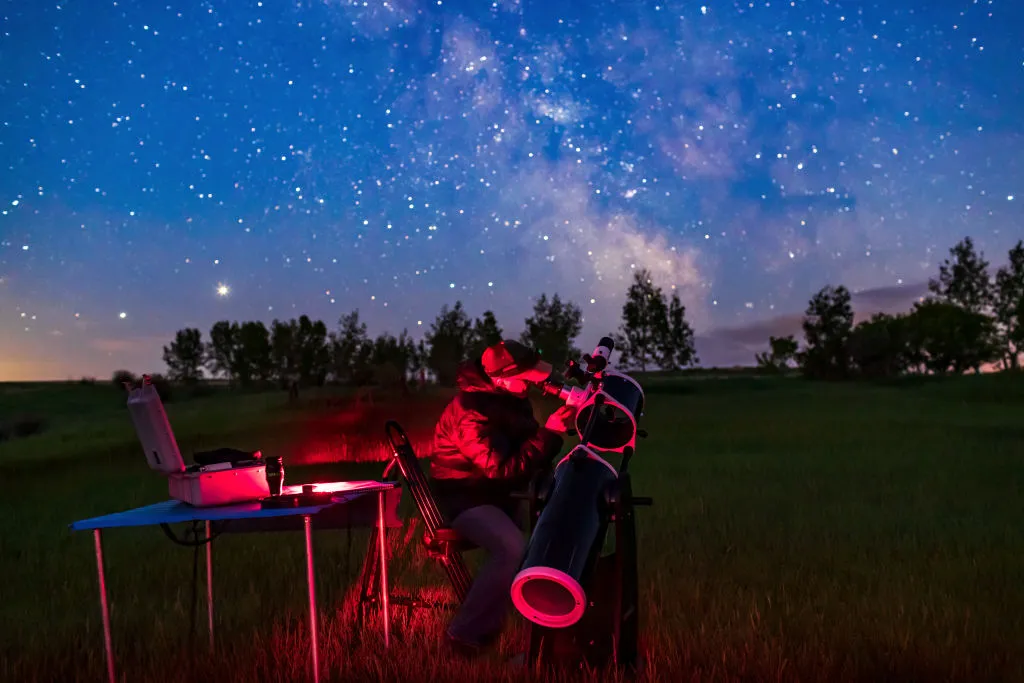
The same is true for both naked-eye stargazing and observing the night sky through binoculars or a telescope.
When you step outside on a dark evening, you might be able to see a planet or two and maybe some of the brightest stars in the night sky.
But wait 30 minutes and your dark-adapted vision will enable you to see so much more.
Once your eyes are dark-adapted, bright white light is your worst enemy. A single flash from a car light or a quick glance at your smartphone and your night vision is ruined.
Then it's back to square one.
This makes things tricky if you require a torch to observe a star chart, to make notes or to navigate uneven terrain on your way through a dark-sky site.
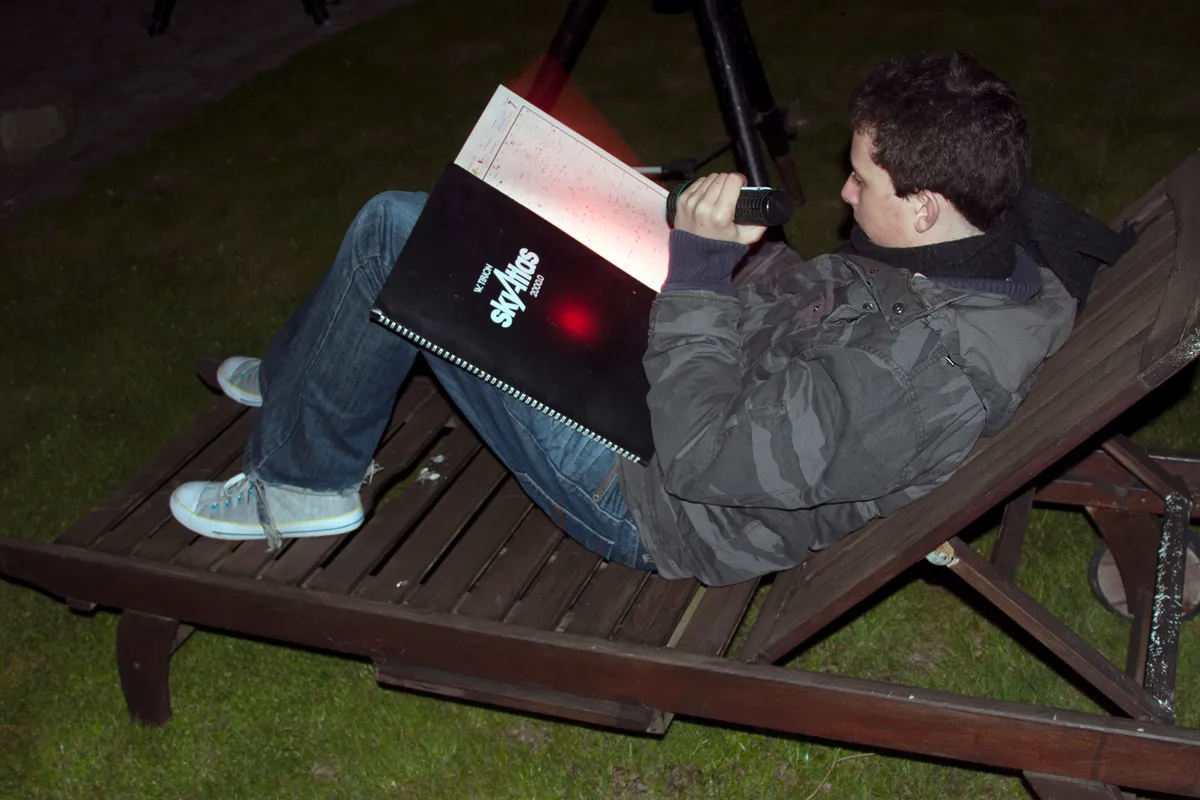
Red light torches help you see in the dark and won't spoil your night vision. As such, they are among the most important accessories in an astronomer's arsenal.
Good red light torches must provide a dim red light that enables you to read. In addition, we looked for torches that were easy to use, lightweight, compact and unlikely to break if dropped.
We also considered value for money and whether they were able to provide light for a night on a single set of batteries.
Here are some of the best red light torches that will help you preserve your dark-adapted vision.
For more on the science of seeing and how to prepare your eyes for an astronomy session, read our guide to averted vision. Or follow our DIY guide to make your own red light torch.
Celestron Night Vision Flashlight
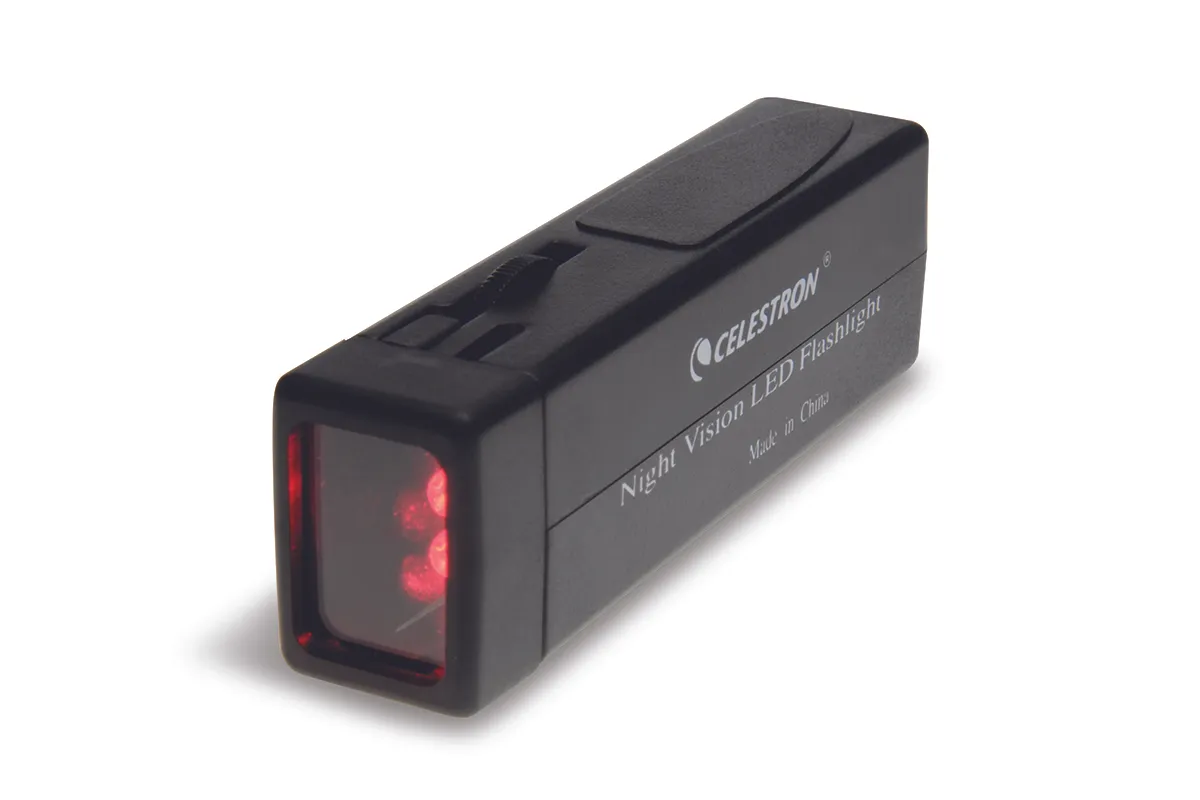
The Celestron Night Vision Flashlight unit takes a 9V battery to power a single pair of red LEDs. These are turned on using a rotary switch, which also controls the brightness.
The red light generated by the torch can be dimmed so you can use it for reading maps and star charts or taking notes, but it can also be made bright enough to enable you to negotiate a path or to watch out for obstacles while navigating a dark-sky site.
This is a highly recommended torch in a simple design that fits nicely in the hand and also features a thin wrist strap.
Rigel SkyLite Red and White Water Resistant Flashlight
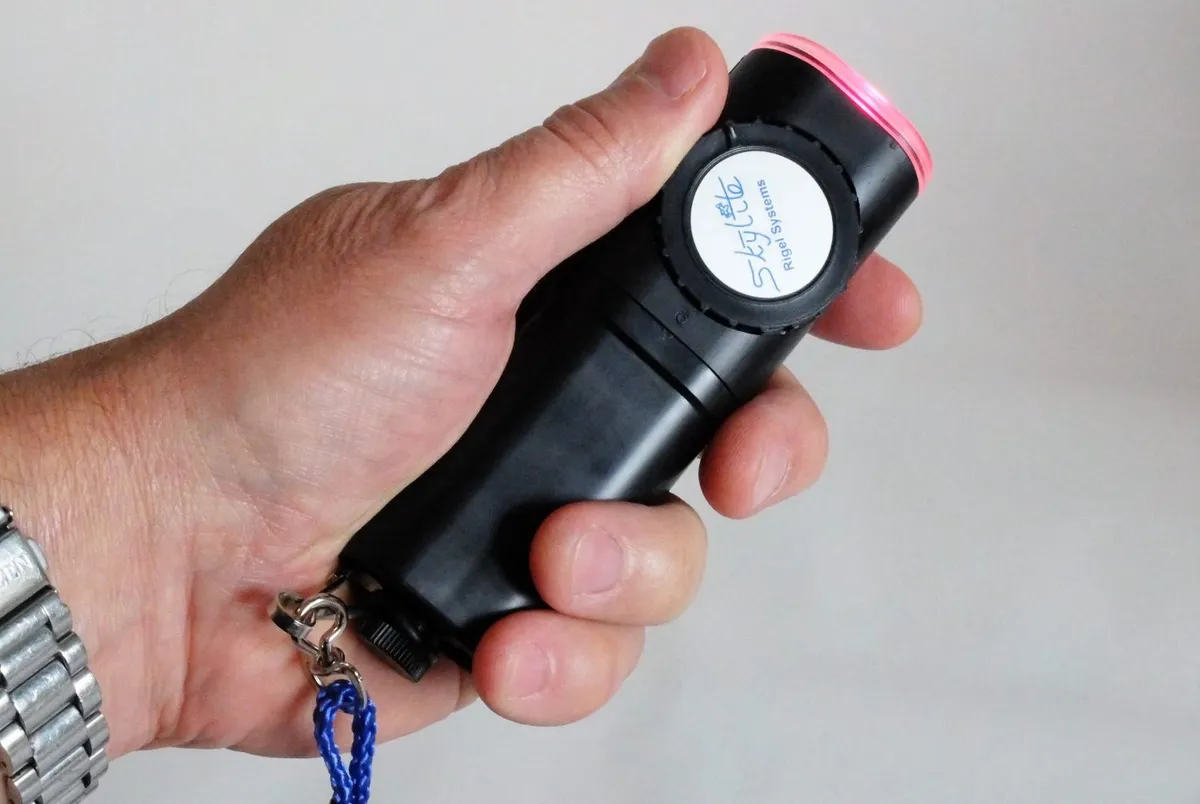
The Rigel SkyLite flashlight may not be the cheapest red torch you'll find, but it does have some features that set it apart from much of the competition.
One is a combined switch/dimmer dial that can be turned clockwise to select red light, and anticlockwise to select white. Both LEDs are bright, but start at the dimmest setting to help protect your night vision.
The torch projects a good beam with a decent spread, helping you find your way or locate dropped accessories. The dimmer works smoothly, too.
The low-level dimmed illumination from the torch is perfect for reading star charts and taking notes.
A lanyard is provided and the casing appears to be water resistant: we found rubber O-rings inside the battery compartment and behind the securing thumbscrew.
Read our full Rigel SkyLite Water Resistant Flashlight review.
Sky-Watcher Dual LED Flashlight
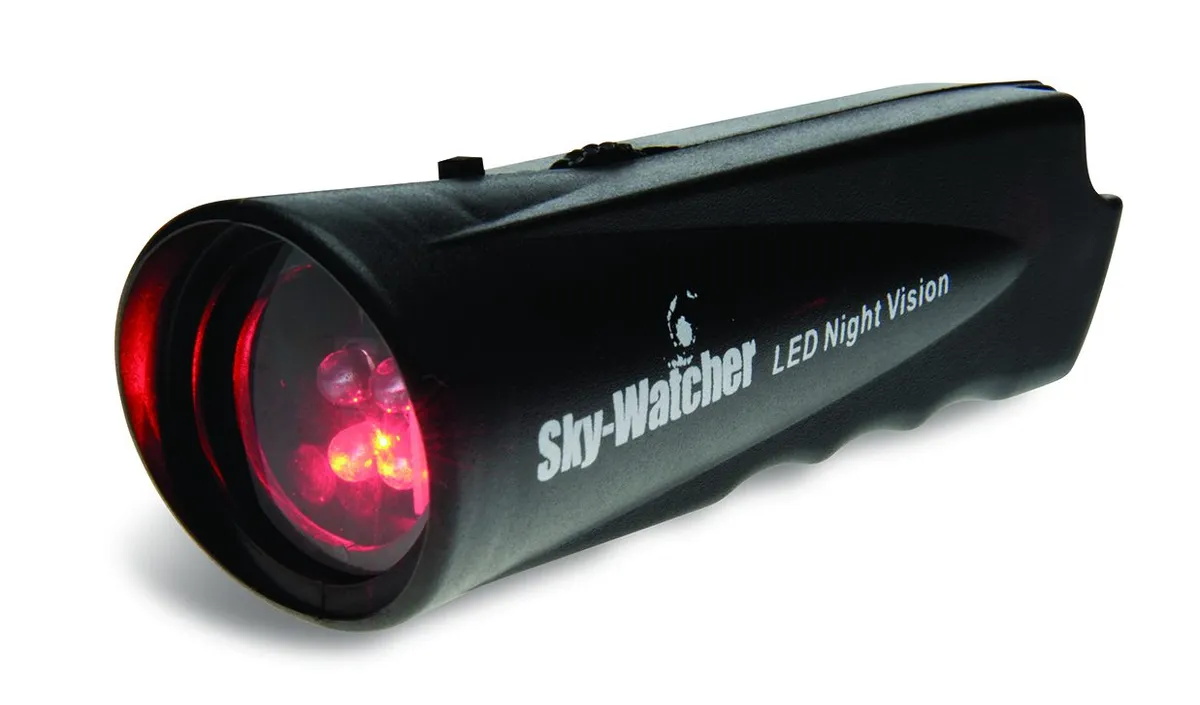
This model from Sky-Watcher contains two pairs of LEDs: one that gives out a red light, and one that gives out white. You can select between the two using a small switch that can also be used to vary the brightness.
The red light is nicely dim, which is good if you want a gentle red glow that won't disturb your fellow observers. The white light is also bright enough to help you navigate your way in the dark, should you wish to use it for non-astronomy purposes. It’s a well-constructed torch, but the only downside is that we did find changing the batteries requires tools.
Dorekin 9LED Red Light
Buy from AliExpress
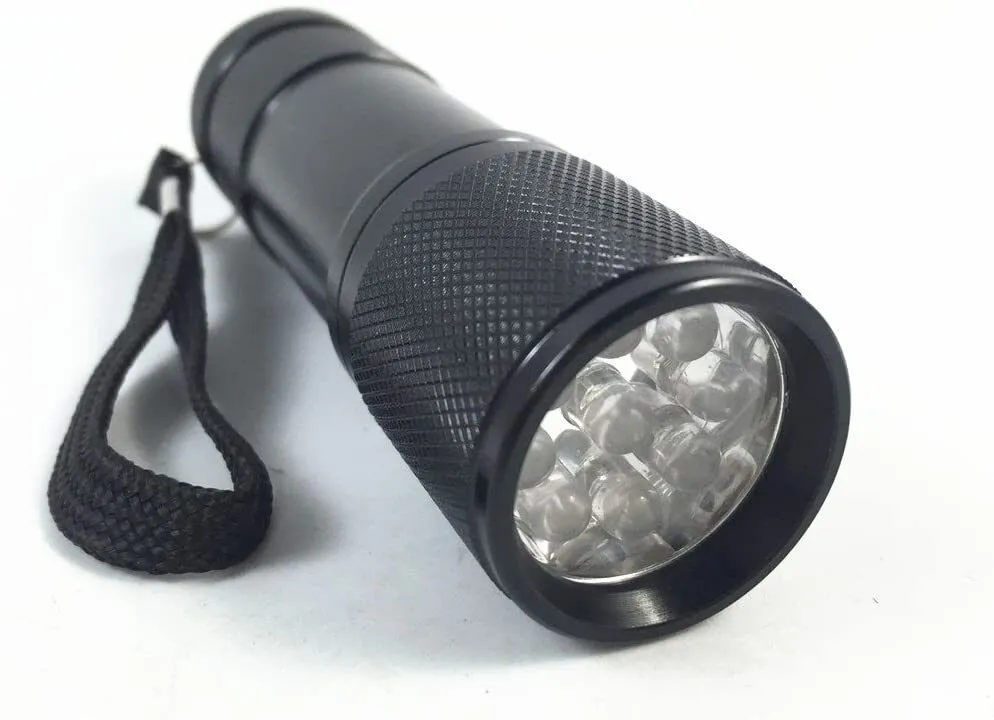
The Dorekin 9LED is one of the lower-budget red torch offerings. This battery-powered LED torch shines at 100 Lumen and weighs just 160g. It takes 3xAAA batteries, which unfortunately don't come supplied.
It is, however, waterproof in terms of being protected against damp and dew (although it won't work underwater, the manufacturer helpfully points out!). If you're after a cheaper option for looking at star charts and locating the right eyepiece, this might be the one for you.
Orion Red Beam II LED Torch
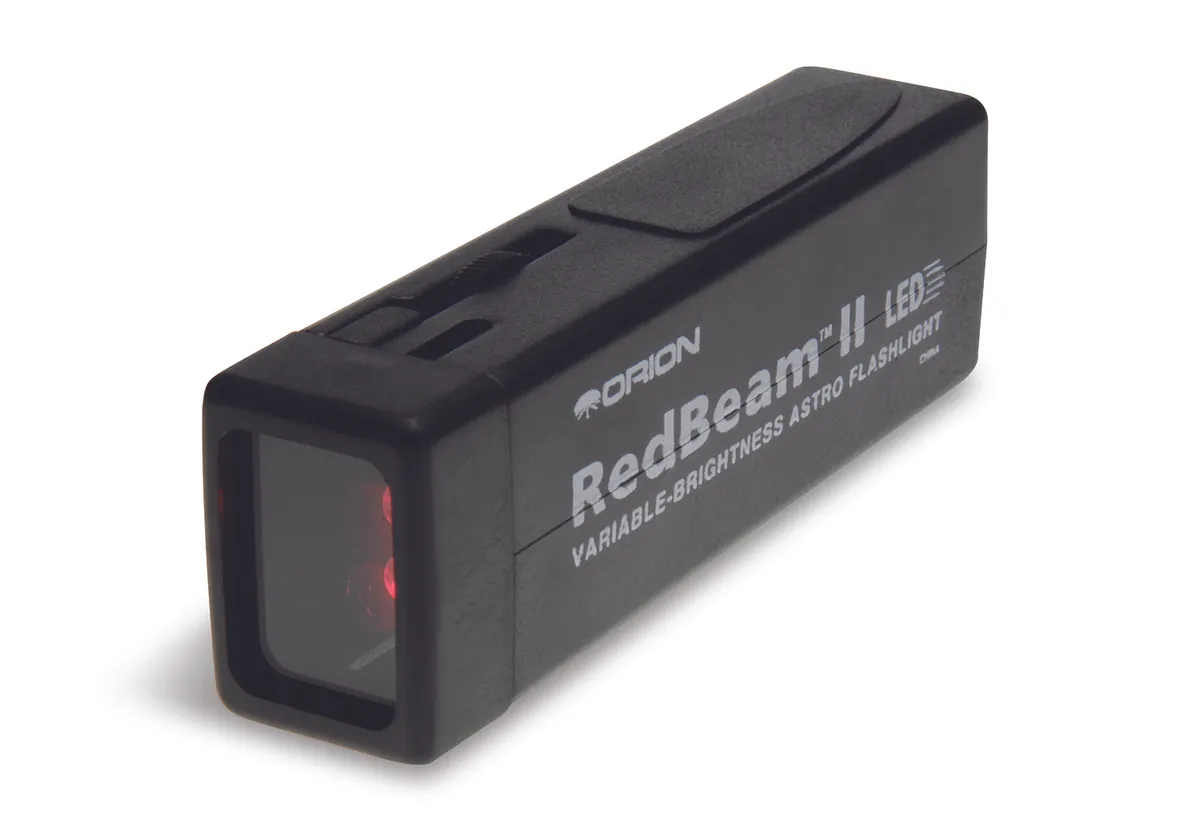
The Orion Red Beam II LED is similar to the Celestron Night Vision Flashlight we've listed above. In fact, only the labelling on the torch's casing shows a real difference. However, we did find that the Orion torch cast a more even light.
The torch's red LEDs are powered by a single 9-volt alkaline battery that comes included and, according to the manufacturer, should keep you going for up to 600 hours of use. The RedBeam II also features a long lanyard that comes in handy should you suddenly need both hands free to do some quick observing.
Orion Dualbeam LED Torch
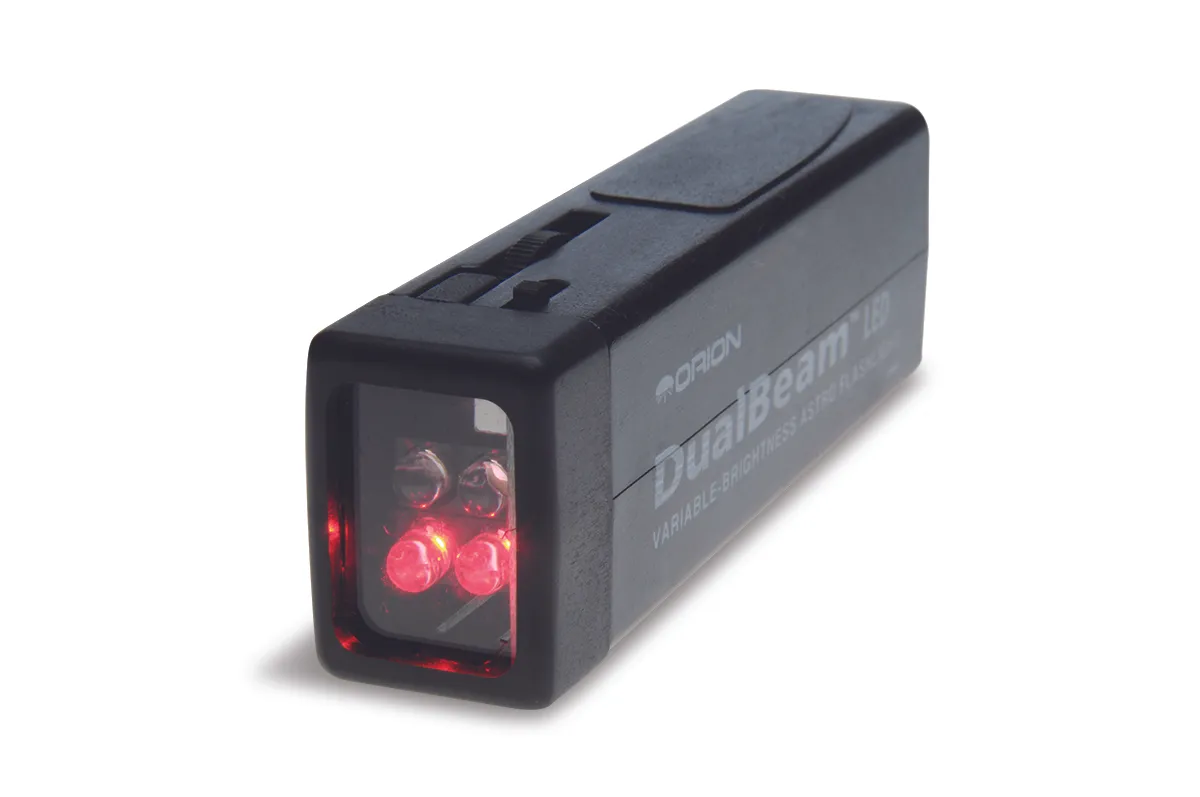
This torch is similar to the Celestron and Orion offerings above, but comes with both white and red LEDs. A rotary switch provides the on-off and brightness selection function.
This is a good, reliable red light torch, but we did find two issues: selecting the colour of LED light was awkward when wearing heavy gloves, and changing the battery also proved quite tricky: we had to use small pliers.